#grand duchess tatiana nicholaievna
Text

Empress Alexandra Feodorovna of Russia with her second child Grand Duchess Tatiana Nicholaievna of Russia, 1898.
#empress alexandra feodorovna#empress alexandra of russia#princess alix of hesse#grand duchess tatiana of russia#grand duchess tatiana nicholaievna#otma#romanovs#imperial children#imperial russia#russian imperial family#1890s#1898#1890s fashion#victorian#colored photography#history colored
168 notes
·
View notes
Note
Hi! Can you give us a huge insight of Tatiana Nikolaevna's personality? I would be interested in some rare quotes said by someone who met her! (cos she is my favorite royal like ever and I'm hopeless obsessed with her 😫)
Hello! Of course, here are some of my favourite rarer quotes about Tatiana - or from Tatiana herself - which I think give a great insight into her personality....

"Tatiana Nicolaievna had holly different… character. Less serious than her elder sister she was also more positive. In her could already be discerned a strong tendency to dominate to impose her authority coquette. She saw and noticed everything, and often made observations to her sisters, who because of it nicknamed her ‘the governess'… she took great care of her appearance and was it was said that she resembled her…”She's already a woman," said the Empress about her that year. She was the favourite in the family. She was very superstitious. One day she wrote to a graphologist, a fortune teller, to ask that she inform her about the destiny in store for her. By an intermediary, the other had sent to her a note couch in these terms: "A fatal destiny awaits you" Thereafter, the Grand Duchess never stopped bombarding her tutor, Petrov with questions such as "What does that mean? How am I to interpret this letter?"" - Alexander Spiridovich, Last Years as Tsarskoe Selo, volume 2
"It was Tatiana Nicholaievna who would call N.P. Sabline by telephone to transmit ‘Papa’s’ order to come with his friends to play tennis." - Alexander Spiridovich, Last Years as Tsarskoe Selo, volume 2
"As for poor Alexei Nikolaevich, he was as if rooted to the armchair the whole time [unwell]. It was touching to see his sister, Tatiana Nicholaievna, lavishing attention on him before the luncheon." - Alexander Spiridovich, Last Years as Tsarskoe Selo, volume 2
"In [Alexandra's] eyes, as well as in those of her sister, Tatiana Nicholalevna, all that was Russian was superior to all the rest. To try, even jokingly, to lower something Russian in favour of something foreign was to expose oneself to losing her sympathy forever." - Alexander Spiridovich, Last Years as Tsarskoe Selo, volume 2
"Russian was taught by Peter Vassilievitch Petrov, whom I had had myself as a teacher at the Pavlovskoe military school. Petrov was already an elderly man, very gentle, and very good hearted. He held the Tsar's children in affection and they, in turn, were attached to him as if to a kindly relative. Often, when they were alone with him, the Grand Duchesses used to play with him, shouting, laughing, pushing him, and generally hauling him about without mercy. It was Tatiana Nicholaievna, graceful and agile as a gazelle, who would always give the signal on these occasions and direct the games. She was, at that time, a very pale little girl. One day, Petrov asked Olga Nicholaievna to name a white object for him.
My blouse, replied the Grand Duchess.
And a black object?
My slate pencil.
And a green one?
My sister Tatiana.
That really was the tint of her complexion." - Alexander Spiridovich, Last Years as Tsarskoe Selo, volume 1
"[Alexandra] herself taught them sewing and needlework, her best pupil being Tatiana, who had an extraordinary talent for all kinds of handwork. She not only made beautiful blouses and other garments, embroideries and crochets, but she was able on occasions to arrange her mother’s long hair, and to dress her as well as a professional maid." - Anna Vyrubova, Memories of the Russian Court
"Suddenly [whilst watching a cinematograph] the bigger girl [in the movie] snatched a toy from the little one who, however, held on to it and refused to give it up. Foiled in her attempts, the elder seized a spoon and pounded the little one with it, who quickly relinquished the toy and began to cry. Tatiana wept to see the poor little one so ill-treated, but Olga was very quiet." - Margaretta Eagar, Six Years at the Russian Court
"One of the under-nurses was married last year. She had come to the palace straight from her school, at seventeen years of age, and was there for nearly seven years. She was naturally very much attached to the children, and when her last day came was in floods of tears all through the day, and the children were terribly distressed to see her in such grief. The little Grand Duchess Tatiana told her she could stay on if she liked, she knew we all loved her and would be sorry to part from her ; and then she came running to me to beg me not to send dear Tegla away. I answered that she might stay if she liked, but that she had promised to marry Vladislav ; it was her own wish, and I did not think she would like to break her word. The other girls gave a little party to celebrate her leaving us, and the young man was amongst the guests. When the girl heard that he had arrived her grief broke forth again. She realised that the time of parting had come, and the children cried most bitterly. Little Tatiana Nicolaivna took a sheet of paper and a pencil, and wrote with great difficulty a letter which I translate : " Vladislav, Be good with Tegla. Tatiana." She placed this letter in an envelope and printed in large letters on the envelope, Vladislav, and sent it to him by the housemaid. I went in later to speak to the man and wish him happiness. He pulled this letter out of his pocket, and with tears in his eyes begged me to thank the little Grand Duchess, and assure her that he would never forget to be good to Tegla. All the more, because it was Tatiana Nicolaivna' s wish. He always carries the letter about with him. She came to visit us several times after her marriage and was very happy. Whenever she writes she always sends a special message to Tatiana to say that Vladislav is very good to her, and the little one looks so pleased and says, " Well, I am glad."" - Margaretta Eagar, Six Years at the Russian Court
"After coffee, I went for a walk with my pupils… They really liked to go to the shops and buy everything. Anastasia Nikolaevna was especially attracted to stored, where they sold doll shoes of various sizes… Tatiana Nikolaevna did not always accompany since the doctors found her heart was weak and she went with the Empress to take baths." - Sofia Ivanovna Tyutcheva, A Few Years Before the Catastrophe
"Alexandra's 594th letter to Nicholas, Sept 19 1916: …I do so want to get quicker well again, have more work to do & all lies upon Tatiana’s shoulders." - Joseph T. Fuhrmann, Nicholas and Alexandra: The Wartime Correspondence
The following are from Correspondence of the Russian Grand Duchesses: Letters of the Daughters of the Last Tsar by George Hawkins:
Tatiana to tutor PVP - 10 July 1906 - "Dear Petr Vasilievich! …Why did you write that I was not good? You mustn’t do that, you must write that I was a very good girl. Your devoted Naughty girl, Tatiana." -
Tatiana to PVP November 6th 1909 "…On these few lines I had 10 errors… I am so ashamed when I think about it"
Pierre Gilliard to Tatiana 25 May 1916 - "...It seems that purple is his [Dmitri Pavlovich] favourite colour… Alexis Nikolaevitch says that it is also yours…"
Letter from Alexandra to her brother and sister-in-law: 2 September 1911 …[after Stolypin's assassination] Tatiana came home very tearful and is still a little shaken whereas Olga put on a brave face throughout." - The Correspondence Of The Empress Alexandra Of Russia With Ernst Ludwig And Eleonore, Grand Duke And Duchess Of Hesse
Note from Anastasia to Tatiana - "1913 Aug. 4. My sweet Tatiana, please find out all about us and let us know through Shura about tomorrow, will we take off our caps for breakfast? Your Anastasia. Don’t forget." - Anastasia Romanov: The Tsar's Youngest Daughter Speaks Through Her Writings
Letter from Pierre Gilliard to Anastasia, Spring 1916: "…I already wrote a long letter to Tatiana Nikolaevna yesterday, but I don’t think I shall send it, otherwise I would not dare to go back to Tsarskoe Selo, I would fear for my life." - Anastasia Romanov: The Tsar's Youngest Daughter Speaks Through Her Writings
"4 December. ...The general atmosphere that lords over [us] nowadays does not inspire peace. As soon as dressings end, Tatiana Nikolaevna goes to do the injection, then sits down with K [officer]. The latter is constantly restless, first sits by the piano, playing something with one finger, chats a lot and fervently with the charming child. Varvara Afanasiyvna is appalled, what if Naryshkina walks in on this scene, Madame Zizi, she would die. Shakh-Bagov has fever, is in bed. Olga Nikolaevna sits by his bed constantly. The other couple also moved there, yesterday [they] sat by the bed and looked at a photo album. K. is being so coy. Tatiana Nikolaevna's small dear child's face cannot hide a thing, [it looks] pink, excited, Isn't this closeness, the physical contact harmful[?]. I feel scared. The others are jealous, angry, and I imagine they spread all sorts of [rumours] throughout the city and later beyond." - From the memoirs of V. I. Chebotareva
"Today Tatiana Nikolaevna walked with me upstairs after dressings, to do Popov’s dressing. The poor child is terribly embarrassed; grabs my hand: “So awfully embarrassing and frightening… one never knows whom to acknowledge and whom not to.”" - From the memoirs of V. I. Chebotareva, Sister of Mercy
"To the right of me sits the Grand Duchess Tatiana. She's a grand princess from head to toe, so aristocratic and regal. Her face is pale matte, only the cheeks are slightly rosy, as if pink satin is trying to escape from just under her thin skin. Her profile is flawlessly beautiful, as if cut from marble by a great artist. The widely set eyes provide uniqueness and originality to her face [...] The nurse's Red Cross kerchief is more flattering to her than to her sisters. She laughs more rarely than her sisters. Her face sometimes has a focused and stern expression. In those moments she looks like her mother. On the pale outlines of her face are traces of deep thoughts and sometimes even sadness. Without any words I feel that she is special, different from her sisters, despite their common traits of kindness and friendliness. I feel hers - is a wholly secluded and unique world." - From the memoirs of Sophia Ofrosimova, Sister of Mercy
The following are all from Tatiana Romanov, Daughter of the Last Tsar: Diaries and Letters, 1913–1918:
"9th June. Tuesday. Today our Mary [Vishnyakova] left us, our nanny who was with us for 16 years. She left because it is time for Aleksei to be transferred into male hands so she will not have anything to do here anymore, so she left. I feel so sorry for her."
"28 February 1916. Tsarskoe Selo. Dear Mama, Would you not want to try to put this piece of fur to your cheek? Olga . . . gave it to me when I too was suffering from headaches. It is from the grave of the orthodox Semyon Verkhotursky. Try it, maybe it will help you. If not, then return it to me tomorrow. I hope that the Lord will help you, and all will be well with you. May God bless you. 1000 kisses from your very own daughter, Tatiana."
"6 April. On Wednesday, I will have my dreary Committee, and even the thought of it makes me sweat. I do not like these horrible committees."
"22 September. My meeting is on Wednesday at 2 o’clock in the Winter Palace in Petrograd. And that knave, Neydgart —he wanted me to read something at the beginning of the committee [meeting], but darling Mama said there was no need. To think, [he wished that] I would read such idiotic, stupid things in front of 14 people! Ah!"
"13 December. I have the great pleasure to go to the Petrograd Committee today. Oh! Not wanting to [go] at all."
"...the dear children worked until the 8th hour. Tatiana Nikolaevna cut her finger with a scalpel, quite a lot of blood flowed, and although the blade was clean, perhaps dust might have ended up in the wound. Melik-Adamov and Shakh-Bagov were sitting nearby. What poetic sympathy Tatiana Nikolaevna brings! How warmly she responded when called to the telephone and was read the telegram about his injury. What a good, pure, and deep girl she is! Youth is attracted to youth, and how her eyes sparkle! Awfully nice!" - Memoirs of V. I. Chebotareva
"Before they left we kissed each other good-bye, and we all had a dim feeling that this was a crucial moment. We had been marched away separately at every previous change from boat to train, but this seemed to be different. Tatiana Nicolaevna tried to take the matter lightly. "What is the use of all these leave-takings? We shall all rejoice in each other's company in half an hour's time!"" - Sophie Buxhoeveden, Left Behind
"I was presented to the Emperor and to two of the young Grand Duchesses, Olga and Tatiana. The latter, to my idea, was the prettier of the two; but both had the simplicity of manner that is the greatest charm in every person and especially in anyone who holds such a position as theirs. They were not blasé in the least, and their faces shone with pleasure and excitement... The eldest, Olga, was very intelligent and gay and had a heart of gold; but she was also rather timid, so that her sister Tatiana, who was much more sociable, was easier to get on with at first." - Olga Voronva, Upheaval
"The Grand Duchess Tatiana was as charming as her sister Olga, but in a different way. She has been described as proud, but I never knew anyone less so. With her, as with her mother, shyness and reserve were accounted as pride, but, once you knew her and had gained her affection, this reserve disappeared, and the real Tatiana became apparent. She was a poetical creature, always yearning for the ideal, and dream- ing of great friendships which might be hers. The Emperor loved her devotedly, they had much in common, and the sisters used to laugh, and say that, if a favour were required, ''Tatiana must ask Papa to grant it." She was very tall, and excessively thin, with a cameo-like profile, deep blue eyes, and dark chestnut hair... a lovely "Rose" maiden, fragile and pure as a flower." - Lili Dehn, The Real Tsaritsa
"The Tsarevitch was a lively, amusing boy, with a wonderful ear for music, and he played well on the balalika : like Tatiana he was shy, but, once he knew and liked anyone, this shyness vanished." - Lili Dehn, The Real Tsaritsa
"October 24 - Today, Tatyana Nikolaevna first came alone: "After all, I'm going here, as if to my second home," and, indeed, she was so sweet and comfortable. She ran with me to the kitchen, where we prepared bandages. The empress laughed and said that Tatyana, like a good house dog, got used to it." - Diaries of Vera Chebotaryova
"In her physical appearance and her serious and ardent nature, she most resembled her mother. "She was also the family's manager and organizer, and possessed, more than her sisters, a highly developed sense of her position as the daughter of the Tsar." Tatiana was very different from Olga in temperament and interests. She was more confident of herself and more reserved, with more perseverance and balance. Slender, with auburn hair and clear gray eyes, she was strikingly good-looking and enjoyed the attention her beauty commanded. As the Empress became more and more an invalid, Tatiana, eighteen months younger than Olga, took over much of the responsibility for the younger children and the household. Had her life run its natural course, she would have graced many a ball." - The private world of the last Tsar, in the photographs and notes of General Count Alexander Grabbe
"Her Imperial Highness is President of the Committee for helping War-ravaged Russia, and is fully explained on the opposite page by M. Czerniewski. She is no mere figurehead, but takes the deepest and most constant interest in this splendid work." - British newspaper article
"Of the persons left behind [at Tobolsk] Tatischeff was the senior; and of the remaining part of the imperial family, Tatiana was considered senior in the place of the Grand Duchess Olga." - Examination of Sidney Gibbes, The Last Days of the Romanovs
"The Grand Duchess Tatiana Nicholaevna was very thin. You could hardly imagine anybody as thin as she was. She was twenty-one years of age, was tall, darker than the rest of the family, and elegant. The colour of her eyes was dark grey. Her eyes made her look different from all of her sisters, who showed their souls through their eyes. She was reserved, haughty, and not open hearted, but she was the most positive. She was also religious, but the motive back of her religion was: "It is my duty,' while Olga Nicholaevna had it in her heart. She was always preoccupied and pensive and it was impossible to guess her thoughts. She played the piano and played it better than anyone else in the family. However, she had only a better technique and did not show feeling in her music. She painted and embroidered well. She was her mother's favourite and the one in whom, of all the daughters, she confided the most. If any favours were to be obtained they had to be gotten through Tatiana Nicholaevna." - Examination of Sidney Gibbes, The Last Days of the Romanovs
The Grand Duchess Tatiana was about twenty. She was quite different from her sisters. You recognised in her the same features that were in her mother — the same nature and the same character. You felt that she was the daughter of an emperor. She had no liking for art. Maybe it would have been better for her had she been a man. When the emperor and empress left Tobolsk nobody would ever have thought that the Grand Duchess Olga was the senior of the remaining members of the imperial family. If any questions arose it was always Tatiana who was appealed to. She was nearer to her mother than the other children; and it seemed that she loved her mother more than her father... All of them, including Tatiana, were nice, modest and innocent girls. There is no doubt they were cleaner in their thoughts than the majority of girls nowadays." - Examination of Commissar E. S. Kobylinsky, The Last Days of the Romanovs
"Tatiana looked like the czaritza. She had the same serious and haughty look as her mother. The other daughters : Olga, Maria and Anastasia,* had no haughtiness about them. One had the impression that they were modest and kind. I also can not describe the way they dressed, as I did not notice it." - Examination of Commissar Yakimov, The Last Days of the Romanovs
"Two other commissaries went to Tobolsk to remove the remainder of the family — Tatiana had been left in charge of the invalid and household. Olga, the eldest daughter, did not enjoy her mother's confidence in the same degree. She took far more interest in literature than in the practical affairs of life, and would hide herself in a comer with a book or tell stories to the soldiers, utterly forgetting domestic trifles. Anastasia, still a child, and rather backward, could be left in Tatiana's care." - Narrative of the editor, The Last Days of the Romanovs
Happy reading! I hope this helped :)
#q#ask#answered#Tatiana Nikolaevna#Tatiana Romanov#sources#otma#history#russian history#imperial russia#romanov family#romanov sisters
71 notes
·
View notes
Photo

Grand Duchess Olga Nicholaievna of Russia in the uniform of her 3rd Elizavetgradsky Hussars Regiment with her sister Grand Duchess Tatiana Nicholeivna in 1911. Check this blog!
13 notes
·
View notes
Photo

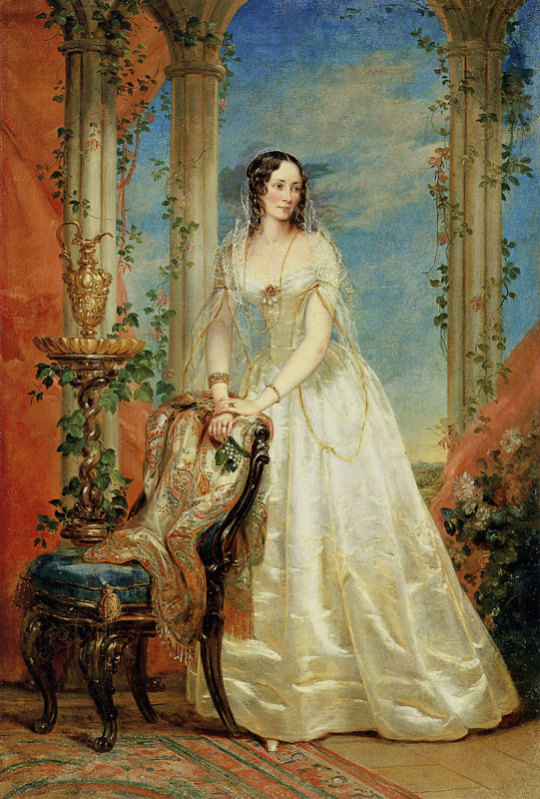
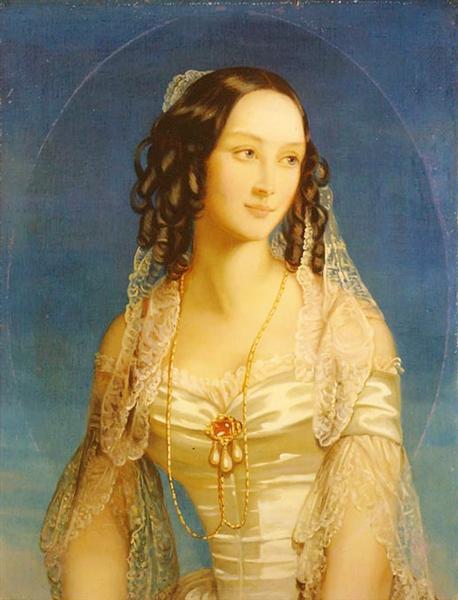
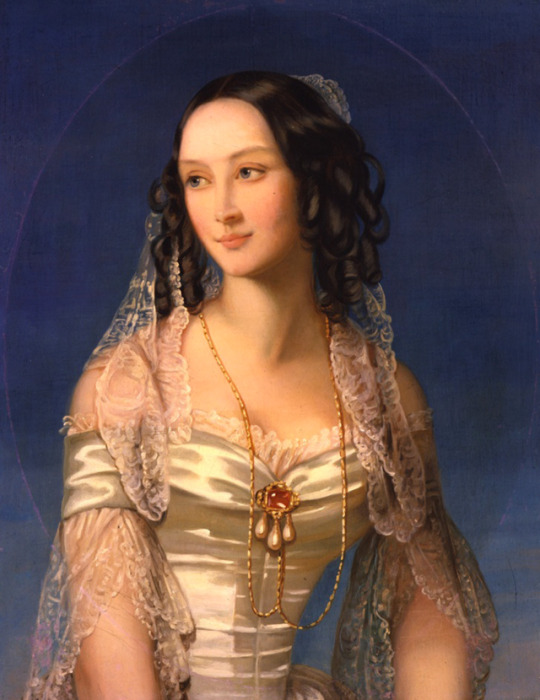

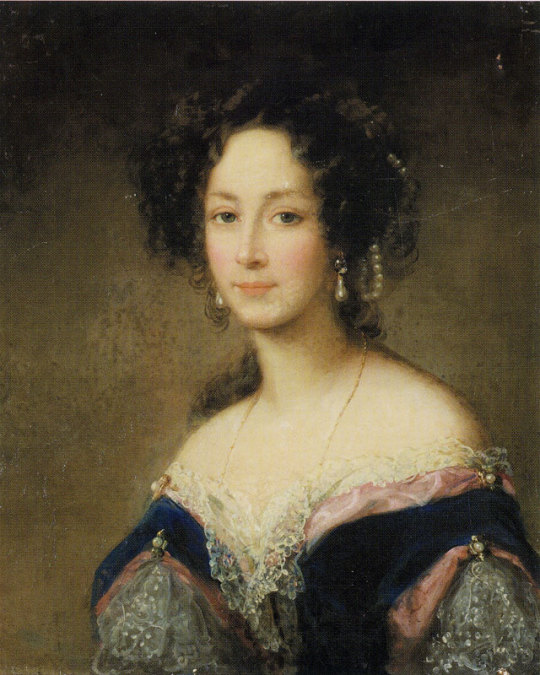
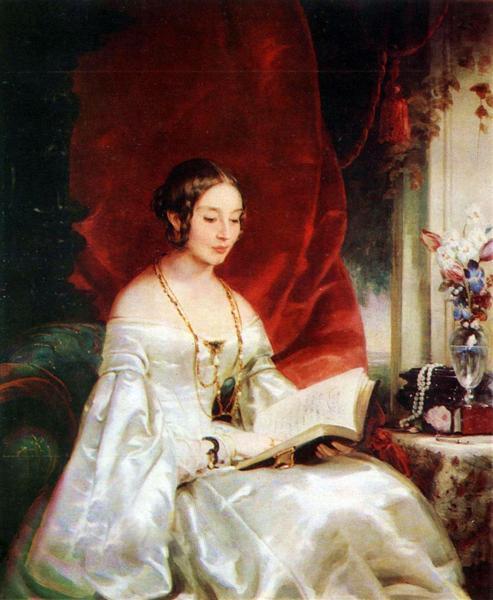

Zinaida Ivanovna Yusupova painted by Christina Robertson
Princess Zinaida Nikolayevna Yusupova (Russian: Зинаи́да Никола́евна Юсу́пова; 2 September 1861 – 24 November 1939) was an Imperial Russian noblewoman, the only heiress of Russia's largest private fortune of her time. Famed for her beauty and the lavishness of her hospitality, she was a leading figure in pre-Revolutionary Russian society. In 1882, she married Count Felix Felixovich Sumarokov-Elston, who served briefly as General Governor of Moscow (1914–1915). Zinaida is best known as the mother of Prince Felix Yusupov, the murderer of Rasputin. She escaped revolutionary Russia and spent her remaining years living in exile.
Zinaida Nikolayevna Yusupova was the only surviving child of Prince Nicholas Borisovich Yusupov (October 12, 1827 – July 31, 1891), Marshal of the Imperial Court, and Countess Tatiana Alexandrovna de Ribeaupierre (June 29, 1828 – January 14, 1879). Prince Yusupov was a patron of the arts, and first served in the chancery of Tsar Nicholas I. Zinaida's mother, a lady-in-waiting to the Empress, was the daughter of Comte Alexandre de Ribeaupierre and his wife Catherine Mikhailovna Potemkina, a niece of Prince Potemkin.
Princess Zinaida's only brother, Prince Boris Nicholaievich Yusupov, died in early childhood. She also had a younger sister, Princess Tatiana Nicholaievna, who died young, in 1888. As the only surviving child of a distinguished, highly placed, and vastly rich couple, Zinaida enjoyed great favor at court. She was the greatest Russian heiress of her day, and the last of her line, the House of Yusupov. The Yusupovs, a family of Crimean Tatars origin, were very wealthy, having acquired their vast fortune generations earlier. Their properties included four palaces in St. Petersburg, three palaces in Moscow, 37 estates in different parts of Russia (Kursk, Voronezh and Poltava). They owned more than 100,000 acres (400 km²) of land and their industries included sugarbeet factories, brick plants, saw-mills, textile and cardboard factories, iron-ore mines, flour mills, distilleries and oil fields on the Caspian Sea.
Prince Nikolai Borisovich Yusupov was hoping that Zinaida would make an illustrious marriage, but at a reception organized to pair her with the Prince of Battenberg, Zinaida met and fell in love with Count Felix Felixovich Sumarokov-Elston (October 5, 1856, Saint Petersburg, Russia - June 10, 1928, Rome, Italy), son of Count Felix Nikolaievich Sumarokov-Elston. Felix was a lieutenant in the Horse Guards. They were married on April 4, 1882 in Saint Petersburg, Russia. Princess Zinaida and her husband had four sons, two of whom survived childhood: Prince Nicholas Felixovich Yusupov (1883–1908) and Prince Felix Felixovich Yusupov (1887–1967). After his father-in-law died, in 1891, Felix was granted special permission by Tsar Alexander III to carry the title Prince Yusupov as well as that of Count Sumarokov-Elston and to pass them both to his and Zinaida's heir. Prince Felix was appointed adjutant to the Grand Duke Sergei Alexandrovich in 1904 and commanded the Cavalry of the Imperial Guards. In 1914 he was appointed Governor General of Moscow, a position he held briefly.
The couple had their own mansion in Liteyny Avenue, where the Institute of Economic Relations, Economics and Law is currently located. She owned the palace at Nevsky Prospect 86 as well.
As a leading figure in pre-Revolutionary Russian society, Zinaida was famed for her beauty, elegance and the lavishness of her hospitality. In her book of memoirs, Ladies of the Russian Court, Meriel Buchanan (1886-1959), daughter of the British ambassador at the Russian court, described Princess Zinaida as: "Delicate in health, easily exhausted, essentially feminine, she was not one of those capable, competent woman, able to run big charitable organizations. She was always ready to give, freely and generously, to anyone who appealed to her, to do what she could to help anyone in distress, to lend her name, her house, her resources for any worthy cause, but she shrank from publicity, from all the complications of executive administration."
Princess Zinaida Yusupova served as lady-in-waiting to both the Empress Maria Feodorovna and later Empress Alexandra Feodorovna and was a close friend to Grand Duchess Elisabeth Feodorovna wife of Grand Duke Sergei Alexandrovich of Russia.[2] In private, she became a severe critic of Empress Alexandra Feodorovna, Grand Duchess Elisabeth's sister. Zinaida's eldest son, Nicholas, age 26, was killed in a duel in 1908, an event which cast a shadow over the rest of her life. In February 1914, Zinaida's younger son, Felix, married Princess Irina Alexandrovna of Russia, Tsar Nicholas II's only niece. Felix fell from grace for participating in the murder of Grigori Rasputin.
Following the Russian Revolution, she lost her vast wealth. She and her husband moved to Rome living under reduced circumstances. After his death she moved to Paris, where she died in 1939.
The Australian conductor Alexander Briger claims descent from her, though it is unlikely.
3 notes
·
View notes
Note
Do you havw any postcard collecting advice? I want to find high quality ones but I'm also very broke lol
1) Patience and 2) creative searches. Some of my best finds were ones that the seller listed poorly because they didn’t know what they had; I found them by accident searching for something else. So things like “Russian royal family” “imperial princess,” alternate spellings of names (Tatjana/Tatyana, Anastasija/Anastasiya, Marie/Mary/Marija, Nikolajevna, Nicholaievna) etc. Also listings in other languages: Grossfurstin (Grand duchess in German), Grande duchesse, von Russland, Russie, etc. You can find some gems if you dive deep. I’ve mentioned this before, but one of my first major purchases was 8, authentic, unused Russian edition OTMAA cards for only $56!!! (I’ve paid nearly that much for just ONE card). They were listed as like “Russian imperial prince and princess” and so only a few other people found them. Actually it was 9 cards, but one of the 9 wasn’t even OTMAA. Still not sure who these kids are, it’s not labeled, but they aren’t OTMAA. lolIf you want to start collecting on a budget, I’d recommend starting not with postcards, but the cigarette/chocolate cards. They’re smaller and a lot cheaper, but not too terribly hard to find. If you’re patient you can get them for just a couple dollars a piece. The Felix Potin cards are very tiny, but have some of the BEST, clearest, real photos I’ve seen in my collecting. https://www.delcampe.net/en_GB/collectables/photography/photographs-famous-people/2-collection-felix-potin-tatiana-princesse-de-russie-nee-a-peterhof-383710296.html - Tatiana cigarette card for 2 Euros (about $2.35) https://www.delcampe.net/en_GB/collectables/trade-cards/chocolate-guerin-boutron/chromo-chocolat-guerin-boutron-princesse-anastasie-de-russie-505-dimensions-environ-6-3-x-10-3-cm-478436101.html - Anastasia chocolate card, 1 Euro (about $1.20). These are also a good way to build up some good feedback on auction sites before you go for higher priced things so sellers know you’re legit.
2 notes
·
View notes
Photo
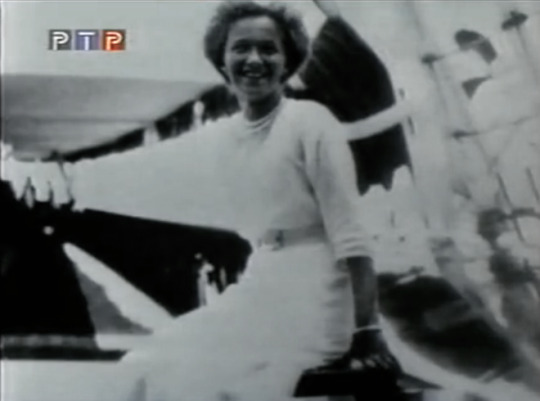
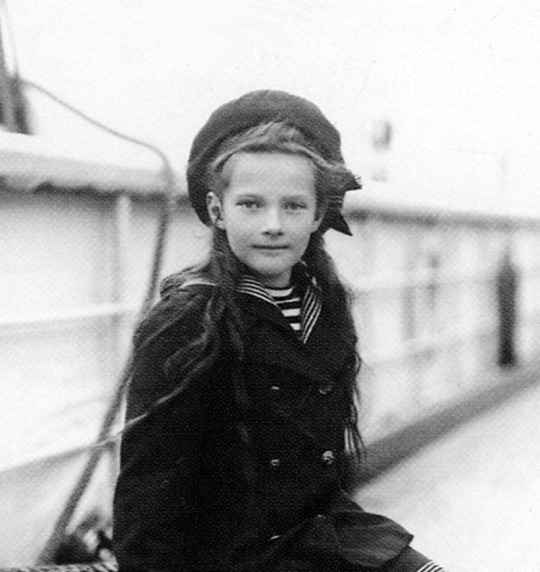



#Romanov#OTMA#Grand Duchess Olga Nicholaievna#Grand Duchess Tatiana Nicholaievna#Grand Duchess Maria Nicholaievna#Grand Duchess Anastasia Nicholaievna#Imperial Russia#Royalty#Romanova
29 notes
·
View notes
Text
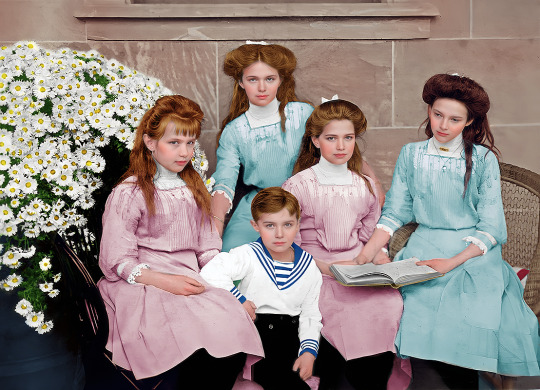
Grand Duchesses Olga, Tatiana, Maria and Anastasia with their brother Grand Duke Alexei, Darmstadt, 1910.
#grand duchess olga of russia#grand duchess olga nicholaievna#grand duchess olga nicholaievna of russia#grand duchess tatiana of russia#grand duchess tatiana#grand duchess tatiana nicholaievna#grand duchess tatiana nicholaievna of russia#grand duchess olga#grand duchess maria of russia#grand duchess maria nicholaievna#grand duchess maria nicholaievna of russia#grand duchess anastasia#grand duchess anastasia nicholaievna#grand duchess anastasia of russia#grand duchess anastasia nicholaievna of russia#grand duke alexei of russia#grand duke alexei#tsarevich alexei#tsesarevich alexei#otma#otmaa#romanovs#imperial russia#imperial family#russian imperial family#1910s#colored photography#1910#wolfsgarten#schloss wolfsgarten
60 notes
·
View notes
Text
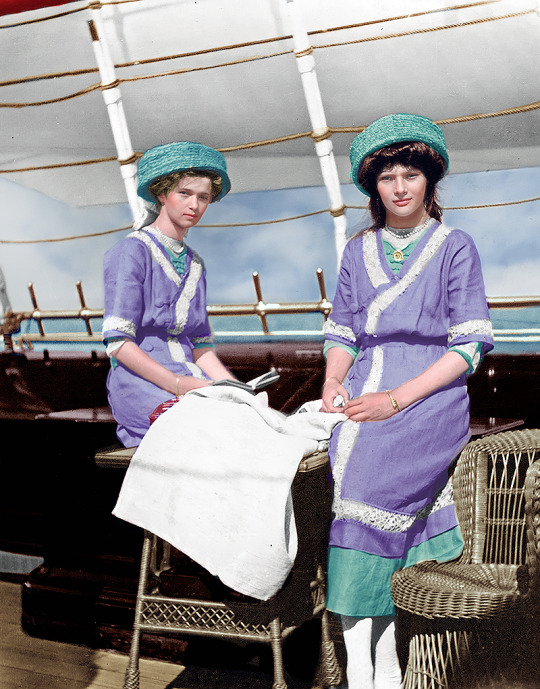
Grand Duchesses Olga and Tatiana onboard Imperial Yacht Standart, 1910/11.
#grand duchess olga of russia#Grand duchess olga nicholaievna#grand duchess olga#grand duchess tatiana#grand duchess tatiana nicholaievna#grand duchess tatiana of russia#otma#romanovs#imperial children#imperial russia#imperial yacht standart#imperial family#1910s#1910s fashion#1910#1911#colored photography#history colored
92 notes
·
View notes
Text
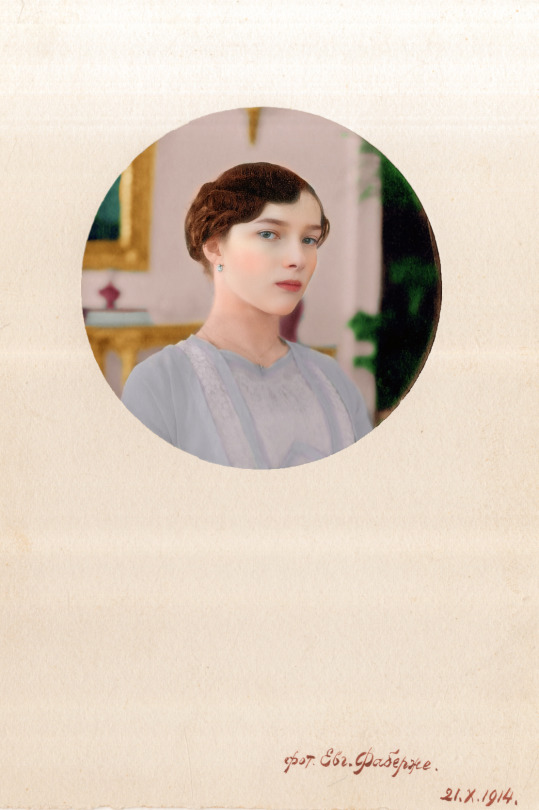
Grand Duchess Tatiana Nicholaievna of Russia, 1914.
#imperial russia#imperial family#russian imperial family#romanovs#colored photography#1910s#grand duchess tatiana of russia#grand duchess tatiana#grand duchess tatiana nicholaievna#grand duchess tatiana nicholaievna of russia#otma#1914#history colored
15 notes
·
View notes
Photo

Grand Duchess Tatiana Nicholaievna of Russia taking a break from tennis, 1912.
#Grand Duchess Tatiana Nicholaievna of Russia#Grand Duchess Tatiana#Grand Duchess tatiana of Russia#Grand Duchess Tatiana Nicholaievna#1912#Romanovs#imperial russia#Imperial Family#imperial children#otma#1910s#digital coloring#b&w picture coloring#colored photography#history colored
90 notes
·
View notes
Text

Grand Duchesses Olga, Tatiana, Maria and Anastasia of Russia with their brother Grand Duke Alexei of Russia, 1910.
#otma#otmaa#1910#1910s fashion#1910s#romanovs#romanov sisters#russian imperial family#imperial family#imperial russia#grand duchess olga#grand duchess olga of russia#grand duchess olga nicholaievna#grand duchess tatiana#grand duchess tatiana of russia#grand duchess tatiana nicholaievna#grand duchess maria#grand duchess maria of russia#grand duchess maria nicholaievna#grand duchess anastasia of russia#grand duchess anastasia#grand duchess anastasia nicholeivna#grand duke alexei of russia#grand duke alexei#tsarevich alexei#colored photography#history colored
50 notes
·
View notes
Photo

Grand Duchesses Olga, Tatiana, Maria and Anastasia of Russia posing for their last official photograph in their mother’s formal reception room at the Alexander Palace, 1916.
#grand duchess olga#Grand Duchess Olga Nicholaievna of Russia#grand duchess olga of russia#grand duchess tatiana#Grand Duchess Tatiana Nicholaievna#grand duchess tatiana of russia#grand duchess maria#Grand Duchess Maria Nicholaievna#grand duchess maria of russia#grand duchess anastasia of russia#grand duchess anastasia#Grand Duchess Anastasia Nicholaievna#1916#1910s#1910s fashion#romanovs#imperial russia#Imperial Family#imperial children#otma#digital coloring#history colored#b&w picture coloring#alexander palace
77 notes
·
View notes
Photo
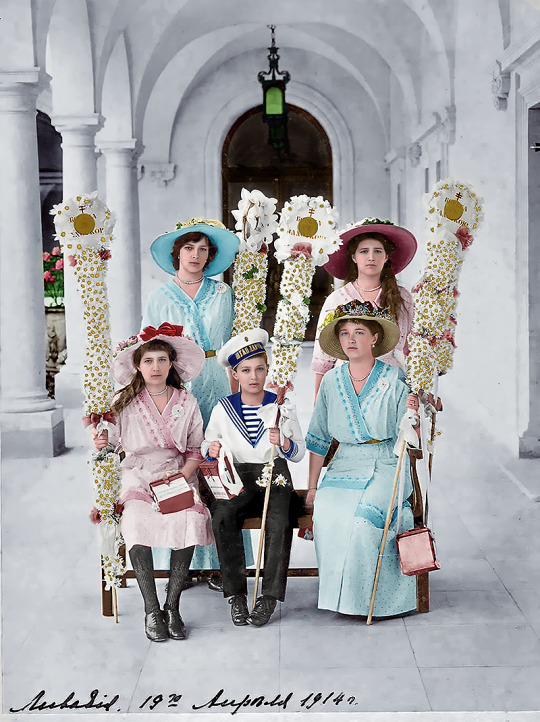
Children of Emperor Nicholas II of Russia and Empress Alexandra of Russia, posing on the White Flower Day, Livadia, 1914
#grand duchess olga#Grand Duchess Olga Nicholaievna of Russia#grand duchess olga of russia#grand duchess tatiana#Grand Duchess Tatiana Nicholaievna#grand duchess tatiana of russia#grand duchess maria#Grand Duchess Maria Nicholaievna#grand duchess maria of russia#grand duchess anastasia of russia#grand duchess anastasia#Grand Duchess Anastasia Nicholaievna#Grand Duke Alexei#Grand Duke Alexei of Russia#tsarevich alexei#1914#1910s#crimea#livadia#otma#otmaa#romanovs#Imperial Family#imperial russia#imperial children#colored#digital coloring#history colored#b&w picture coloring
42 notes
·
View notes
Photo
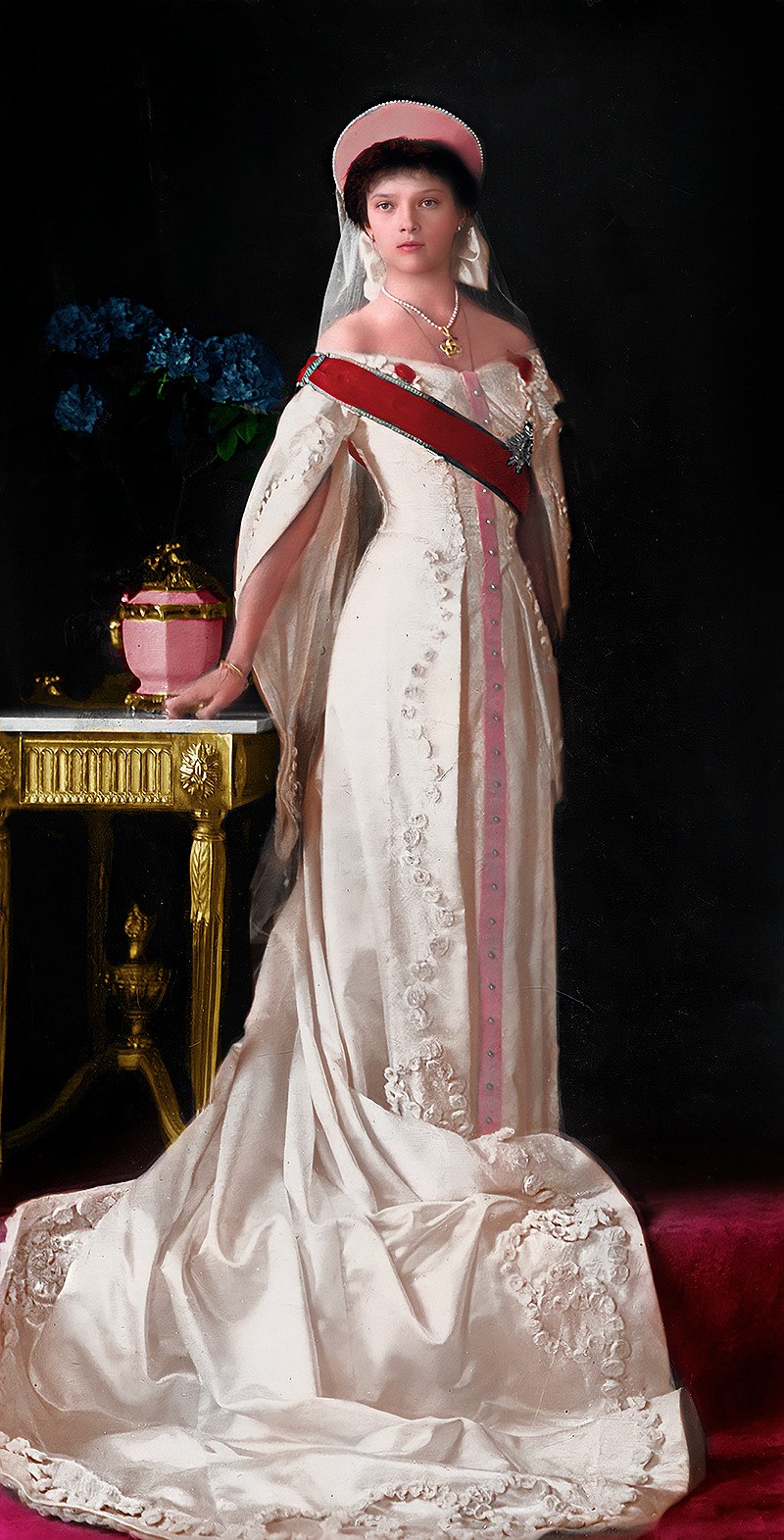
Grand Duchess Tatiana Nicholaievna of Russia, 1913.
#Grand Duchess Tatiana Nicholaievna of Russia#Grand Duchess Tatiana#Grand Duchess Tatiana of Russia#Romanovs#imperial russia#Imperial Family#otma#1913#romanov tercentenary#russian court dress#1910s#colored photography#b&w picture coloring#history colored#digital coloring
187 notes
·
View notes
Note
Hi! Where do you read letters and diaries of NAOTMAA? Do you read it online and if not where do you buy books? I luv ur blog sm ❤️🩹🙃
Hello! Thank you for your question and compliments!
I read the diaries and letters from physical books. A few books are online, and Olga and Tatiana's diaries are online, but require institutional access - you can see more about that here.
If you have an amazon prime account or free trial, you can read some online using the kindle app.
The most prolific translator is Helen Azar, who collaborates often with George Hawkins and Nicholas B. A. Nicholson.
I am going to list all the books that I am aware of that are dedicated purely to translations:
1895 Diary of Tsar Nicholas II, Lottie Bailey
1913 Diary of Grand Duchess Maria Nikolaevna: Complete Tercentennial Journal of the Third Daughter of the Last Tsar, Helen Azar, Amanda Madru
A Lifelong Passion, Andrei Maylunas, Sergei Mironenko (this book is huge, almost 800 pages, and has translated letters and diaries from Nicholas and Alexandra, some of OTMA's notes, and extended family)
Alexei: Russia's Last Tsesarevich - Letters, diaries and writings, George Hawkins
Anastasia Romanov: The Tsar's Youngest Daughter Speaks Through Her Writings, Helen Azar, George Hawkins
Correspondence of the Russian Grand Duchesses: Letters of the Daughters of the Last Tsar, George Hawkins
In the Steps of the Romanovs: Final Two Years of Russian Imperial Family (1916-18), Helen Azar
Journal of a Russian Grand Duchess: Complete Annotated 1913 Diary of Olga Romanov, Eldest Daughter of the Last Tsar, Helen Azar
MARIA and ANASTASIA: The Youngest Romanov Grand Duchesses In Their Own Words, Helen Azar
MARIA ROMANOV: THIRD DAUGHTER OF THE LAST TSAR. Diaries and Letters 1908-1918, Helen Azar, George Hawkins
Romanov Family Yearbook: On This Date in Their Own Words, Helen Azar, Amanda Madru
Russia's Last Romanovs: In Their Own Words, Helen Azar
Tatiana Romanov, Daughter of the Last Tsar: Diaries and Letters, 1913–1918, Helen Azar, Nicholas B.A. Nicholson
The Complete Wartime Correspondence of Tsar Nicholas II and the Empress Alexandra, April 1914-March 1917 (Documentary Reference Collections), Joseph Fuhrmann (at a whopping 800 pages, this book went out of print several years ago. It not sells for over $100 regularly, though you can get it cheaper second hand. It is the only completely uncut edition of all of Nicholas and Alexandra's telegrams and letters during WWI.)
The Correspondence of the Empress Alexandra of Russia with Ernst Ludwig and Eleonore, Grand Duke and Duchess of Hesse. 1878-1916, Petra H. Kleinpenning (includes both the original German letters and English translations)
The Diary of Grand Duchess Olga Nicholaievna - 1913, Marina Petrov, Reagan Baker
The Diary of Olga Romanov: Royal Witness to the Russian Revolution, Helen Azar
The Last Diary of the Tsaritsa Alexandra, Vladimir Khrustalev, Robert K. Massie
Diaries and letters are occasionally quoted by historians in their books, but books solely dedicated to these writings tend to not be online for free reading unfortunately. However, here are a few:
Nicholas's 1917-1918 diary is translated and available to read for free here!
A Lifelong Passion is available to read for free here!
Anna Vyrubova includes a few letters from Alexandra, which you can read for free here!
My recommendations if you are just starting to get into the Romanovs and their writings would be either A Lifelong Passion, Correspondence of the Grand Duchesses, and the diaries and letters of OTMAA. Note that some of the other books by Azar have letters from other members of the family, rather than being focussed on just one member, so expect repeated letters and diary entries if you decide to purchase all of her books. For example, letters published in Maria's book are also published in the book dedicated to Maria and Anastasia.
In terms of where I buy them, I like to get my books second hand - helps out the planet and also means that you usually can get a good discount!! Translated books often aren't cheap, because of the time and money spent visiting archives and translating each piece of writing individually. For example, I managed to get a book almost 70% cheaper than the retail price by buying it second hand. I use websites like eBay, WOB (world of books), and abebooks.
I hope that this was helpful!
14 notes
·
View notes
Photo
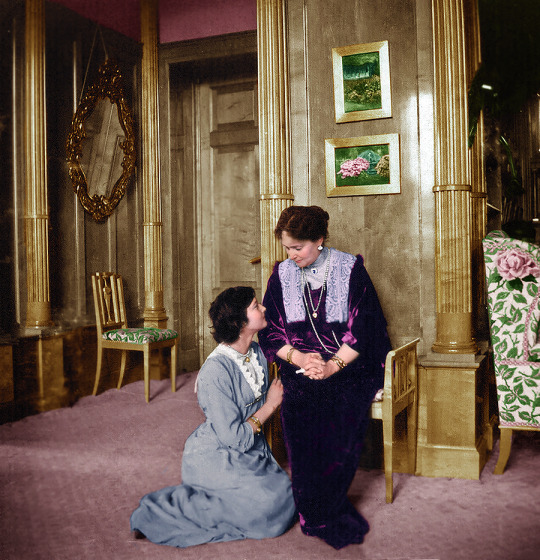
Empress Alexandra Feodorovona of Russia with her second daughter Grand Duchess Tatiana Nicholaieva of Russia, Livadia, 1914.
#empress alexandra feodorovna#empress alexandra of russia#princess alix of hesse#grand duchess tatiana of russia#grand duchess tatiana nicholaievna#otma#imperial russia#Imperial Family#imperial children#romanovs#livadia#crimea#1914#1910s
109 notes
·
View notes